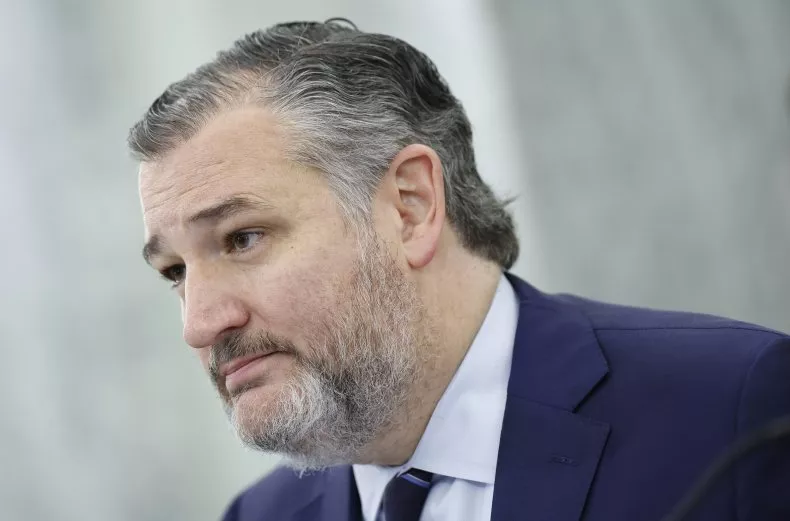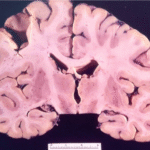Texas Senator Ted Cruz has announced that Republicans are set to push for a “crackdown” on what he describes as “massive fraud” within the Medicaid program.

In an interview with CNBC, Cruz stated that he anticipates “significant Medicaid reforms” as Congress moves forward with budget reconciliation legislation and seeks to extend existing tax cuts. According to the Senator, these proposed reforms will hinge on two critical pillars: aggressively rooting out fraudulent practices and implementing new work requirements for beneficiaries. Newsweek has reached out to Cruz’s office for further comment.
Understanding Medicaid: A Vital Healthcare Lifeline
Medicaid is a crucial joint federal and state program, established as part of the Social Security Act amendments of 1965, designed to provide health coverage to some of the nation’s most vulnerable individuals and families.
This includes millions of children, low-income parents, pregnant individuals, elderly people with certain income levels, and people with disabilities. While eligibility criteria and the scope of benefits vary significantly by state, Medicaid served over 72 million people across the country as of October, underscoring its vital role in the U.S. healthcare system.
Proposed Budget Cuts and the Legislative Path
Cruz’s comments align with the broader legislative agenda set by the Republican Party in Congress. Congressional committees are currently reviewing a wide-ranging spending bill, which the House of Representatives already passed in April.
Although the budget reconciliation bill does not directly stipulate cuts to Medicaid, it includes directives for the House Committee on Energy and Commerce, which holds jurisdiction over the program, to reduce the Department of Health and Human Services’ (HHS) budget by a substantial $880 billion over the next decade. This significant reduction could have far-reaching implications for Medicaid funding and its operations.
Targeting “Massive Fraud”: The Case for a Crackdown
During his appearance on CNBC’s Squawk Box, Senator Cruz specifically targeted “massive fraud,” particularly in what he referred to as “blue states” such as California and New York, which he claims have “really exploited the Medicaid system, exploited the federal taxpayer.” He expressed his expectation that Congress will “crack down on the fraud, on people who aren’t eligible for Medicaid nonetheless being on it.”
Medicaid fraud typically involves individuals or providers intentionally submitting false information to improperly obtain or receive payments for medical care or services. Examples include billing for services not rendered, misrepresenting diagnoses to justify unnecessary treatments, or providing false income information to qualify for benefits.
While fraud is a recognized concern in all large government programs, the numbers cited by Cruz regarding convictions in 2024, derived from data from the Department of Health and Human Services’ Office of Inspector General (OIG), show varying levels of enforcement across states: New York had 17 convictions, California had 40, and Texas had 70. The OIG plays a critical role in investigating and prosecuting such cases to protect taxpayer funds.
Implementing Work Requirements: A Contentious Policy
Earlier this year, a Republican budget memorandum proposed introducing work requirements for Medicaid recipients, a move that Senator Cruz openly supported on CNBC. Cruz argued that “you are not helping people by having them sit at home on the couch,” asserting that “the best thing you could do for someone who is not working is incentivize them to get back to work, to get a job and provide for their families.” He believes Congress will move to implement these requirements.
The budget blueprint projects that introducing work requirements for Medicaid beneficiaries could lead to savings of $100 billion over the next 10 years. Importantly, the blueprint specifies that such requirements would not apply to certain vulnerable populations, including “pregnant women, primary caregivers of dependents, individuals with disabilities or health-related barriers to employment, and full-time students.” Instead, they would be limited to “able-bodied adults without dependents.”
Political Alignment and Leadership on Reforms
Senator Cruz’s comments closely reflect the stance of House Speaker Mike Johnson, who is spearheading the effort to get the budget reconciliation bill approved by lawmakers in his chamber.
Speaker Johnson recently confirmed his intent not to alter the formula for federal costs paid to states participating in the Medicaid expansion program (established under the Affordable Care Act), nor would he push for per capita funding caps on Medicaid funds sent to states. This suggests a strategic focus on fraud prevention and work requirements rather than changes to the fundamental federal matching structure or the expansion program itself.
Differing Perspectives on the Impact of Reforms
The proposed Medicaid reforms have elicited strong reactions from various stakeholders. Speaker Mike Johnson, as quoted by NPR, emphasized the intent to protect vulnerable populations:
“Our true and honest intention is to ensure that every Medicaid beneficiary who is in that traditional community of folks, you’re talking about young pregnant mothers and young single mothers and the elderly and disabled, those folks are covered, and no one loses their coverage.”
However, organizations supporting progressive ideas voice significant concerns. The Center for American Progress, a prominent think tank, published an article on May 9 highlighting what it terms the “collateral damage” of proposed Medicaid work reporting requirements.
Their analysis suggests potentially dire consequences, including “Hundreds of thousands of children could lose their coverage, up to 449,000 jobs would be lost, and 15,400 people could lose their lives each year.” The organization unequivocally states that “Medicaid work requirements are not benign administrative adjustments; they are structural barriers that disrupt access to care for entire families, destabilize the workforce, and place lives at risk.”
The Path Forward: Legislative Hurdles and Economic Implications
The legislative process for the budget reconciliation bill is moving forward. A markup, which involves committee members debating, amending, and voting on the legislation, is targeted for the House Committee on Energy and Commerce portion of the bill during the week beginning May 12. This step is crucial, as it determines the final language and specific details of the proposed Medicaid reforms.
Should these reforms pass, they could have significant economic and social implications. The projected budget cuts could place considerable strain on state healthcare budgets and potentially impact the financial viability of healthcare providers that serve a large number of Medicaid beneficiaries.
Critics argue that the administrative burden of implementing and monitoring work requirements could be substantial for states and that any resulting loss of coverage, even for “able-bodied adults,” could lead to poorer health outcomes and increased uncompensated care costs elsewhere in the healthcare system. The debate highlights the fundamental disagreements on the balance between fiscal responsibility, incentivizing work, and ensuring comprehensive healthcare access for vulnerable populations.
A Defining Moment for Medicaid Policy
Senator Ted Cruz’s vocal advocacy for a “crackdown” on Medicaid fraud and the implementation of work requirements signals a defining moment for healthcare policy in the current congressional session.
Backed by the Republican budget blueprint, these proposed reforms aim to reshape how the vital program operates. While proponents emphasize fiscal responsibility and incentivizing self-sufficiency, critics warn of widespread loss of coverage and severe societal consequences.
As Congress moves forward with the budget reconciliation process, the debate over Medicaid’s future underscores the complex interplay between economic policy, public health, and the fundamental role of government safety nets in the United States.








